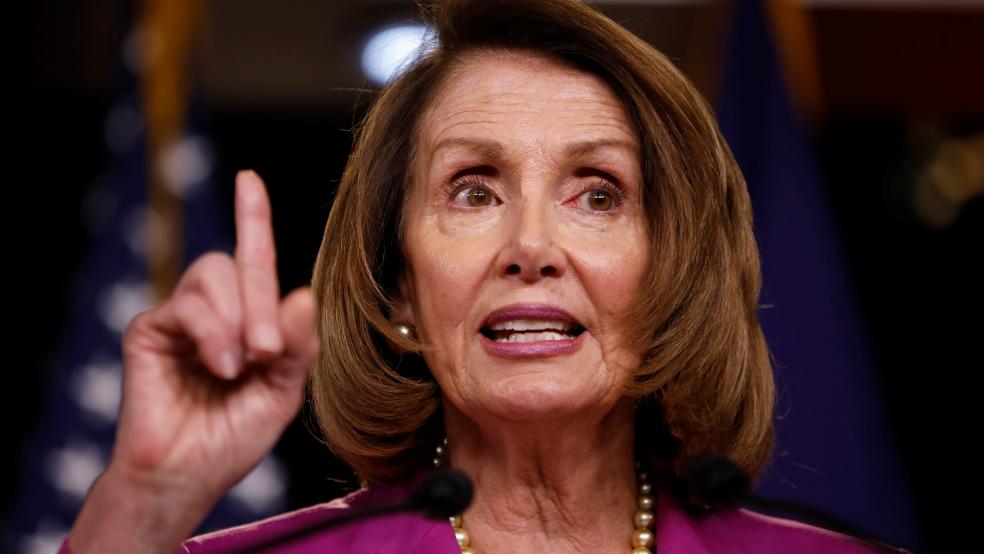House Speaker Nancy Pelosi’s burgeoning plan to reduce Medicare drug prices is drawing complaints from both progressives and conservatives, says Roll Call’s Andrew Siddons.
Pelosi and the House Democratic leaders developing the plan reportedly want to give the federal government the power to negotiate the prices of some drugs covered by Medicare. Under the plan, the Health and Human Services Secretary would enter into direct negotiations with drug manufacturers over the prices of the most expensive drugs. In the event of a disagreement between the parties, the Government Accountability Office would make the final call on pricing, and companies that refuse to accept the arbitrator’s decision would get hit with a tax penalty. But that proposal has features that are sounding alarms on both sides of the aisle.
What bothers liberal Democrats: Progressives say that the Pelosi-led plan doesn’t go far enough and risks creating a system that drugmakers can manipulate to their advantage. They want the government to negotiate the prices for all drugs, not just a subset of the most expensive ones (Pelosi expanded the list of drugs from 25 to 250 under pressure from critics), and they want to give the government the power to strip patents from companies that refuse to negotiate in good faith.
“Arbitration is a very lengthy process,” said Rep. Pramila Jayapal (D-WA), one of the leading liberal critics. “If that’s still the main piece of how we get these drug prices down, I’m concerned that we may not have the ability to take on a lot of drugs.” The arbitration process could be gamed by the drug industry, as well, progressives say, with high-paid lawyers and lobbyists running circles around government negotiators.
What bothers Republicans and Big Pharma: Pelosi’s critics on the right are also worried about her proposal to use negotiation and arbitration, but for different reasons. Conservatives say that Pelosi’s plan would give the government the power to set prices in ways that violate the free market principles they hold dear.
“This comes down to government setting the price, just because someone is going to have to pick the arbitrator, and in doing so, you will start setting the prices by political mechanisms,” said Douglas Holtz-Eakin, a former head of the Congressional Budget Office who now serves as the president of the American Action Forum, a free-market think tank that receives funding from Pharmaceutical Research & Manufacturers of America, the trade group that represents drugmakers.
The drug industry has also spoken out directly against Pelosi’s proposal, claiming that it would give government employees too much power and delay the development of new medicines. “[U]nder government arbitration, a government employee, without necessarily any medical background, would make the decision about whether a Medicare beneficiary could access the medicines that their doctors prescribed,” Juliet Johnson of the Pharmaceutical Research & Manufacturers of America wrote earlier this month.
What comes next: Pelosi has forwarded her proposal to the Energy and Commerce and Ways and Means committees for further refinement. But the opposition from all sides suggests it has a rough road ahead of it. “It’s not a guarantee that progressive caucus members will be for any old bill,” said Rep. Mark Pocan. And even if Democrats can work out their differences on the negotiation process, there’s no sign that Republicans in the Senate have much interest in their approach.
Rep. Ro Khanna of California, a liberal Democrat who has released his own plan to lower drug prices, said he sees no reason to compromise on the bill given its bleak prospects. “I just don’t get the politics here,” he said.




